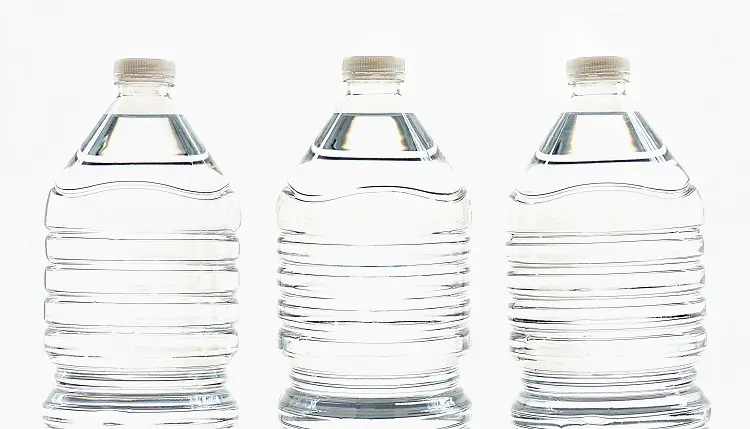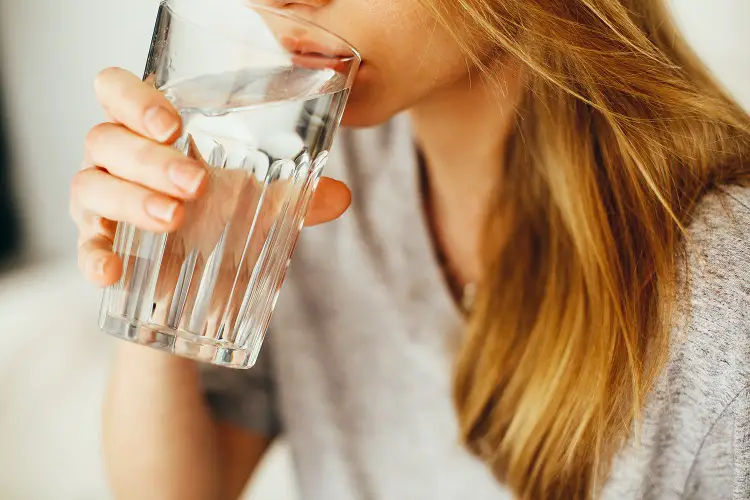Lots of nursing or lactating mothers may be asking the question how much water should I drink while breastfeeding? Nursing mothers especially those who are on exclusive breastfeeding will always have the question of how much water should I drink.
This is to make sure that they have a constant flow of breast milk which is the food for a baby who is the joy and happiness of the parents especially the mother who housed the baby for nine months and underwent that Journey filled with ups and down in other to put to birth her baby.
Nursing mothers especially first-time moms will always ponder on how much water they need to drink while breastfeeding, don’t worry we have got your questions answered read on…
What Is Breast Milk? Everything You Need To Know
Breast milk refers to the fluid produced by the mammary gland in female vertebrates; it is produced by the mammary glands, stored in the breast, and flows through the nipples especially when sensitized by the mouth of the little babe or by gentle touch.
The possession of breasts helps to differentiate between the male and the female mammal in the vertebrate phylum. The development of breasts is one of the characteristic signs in female humans during puberty.
A Pregnant mother undergoes some noticeable physical changes in her body which could be hormonal and they include signs like swelling of the feet, enlargement of the uterus causing the bulging of the stomach, formation of breast milk which is achieved by the hormone oxytocin.
The hormone prolactin is responsible for the flow of breast milk and sometimes needs to be stimulated by the sucking activity of the baby on the mother’s nipple to trigger its flow.
Most mothers get scared and worried if their breast milk doesn’t flow and this is usually a source of concern because of how weighty the breast milk is laden in the breast is and how it causes general discomfort.
How Much Water Should I Drink While Breastfeeding

Most breastfeeding mothers may be worried about the right amount of water to consume while breastfeeding, don’t worry we are here to answer your question. For a mother who is not nursing, it is recommended that she drinks ½ or ¾ ounce of water every day per pound of what the she weighs.
For instance, if you weigh 130 pounds, it’s a good idea to drink up to 65 ounces of water per day. When nursing a baby, you need to consume additional water above this recommended amount to stay well-hydrated.
This helps you to stay hydrated every time as most biochemical reactions take place in the presence of water, even the living mass of a human is made up of 70% of water and the absence of water in a living system can be catastrophic or disastrous and can even lead to death.
Breast milk is a natural endowed food for the sustenance of the newborn, especially the ones produced during the first two to three days of lactation called the colostrum’s which is filled with minerals and antibodies.
This helps the baby fight against infectious diseases and also boosts the immunity of the newborn. Breast milk provides the perfect proportions of proteins, fats, carbohydrates, and lots of nutrients for the newborn hence the need for constant breastfeeding.
When lactating it’s best is advised to consume above the normal requirement to ensure sufficient flow of breast milk and also to stay hydrated.
This is because as the baby breastfeeds it takes water out of your system. Also, during lactation or breastfeeding, there is usually an increase in the sensation of thirst among women or nursing mothers.
This sensation is due to the presence of the hormone oxytocin whose sole responsibility is to make sure that the water taken away from the body during breastfeeding is replenished and to keep the body hydrated as breast milk is composed of 90% of water.
Read Also: When Can Babies Drink Distilled Water
Will Excessive Water Intake Increase Breast Milk Production?
During lactation, drinking excess water will not result in excessive breast milk production as there is no scientific backing to it rather there will be an increase in the rate of urination as homeostasis which is the maintaining of a fairly constant internal environment will come to play.
There is a certain amount of water level every human maintains and when that level is reached the excessive water is gotten rid of through urine formation and eventually discharged as urine through the bladder, urethra, and vulva.
This also affects the water quantity of the breast milk as the water that should be used for breast milk is diverted and sent to the kidney for excretion, and this can affect the milk production and flow adversely.
During lactation the best thing to do is to maintain an adequate intake of water; not too high and not too low, striking a balance is the key.
Read Also: Indian Foods To Increase Breast Milk (12 Foods To Try)
How Do I Know That I Have Taken Enough Water So I Don’t Take Excess?

One may ask; how do I know that I have taken enough water so that I do not take excess? Well, you are not far from the solution just use the simple method of checking the urine color.
And then someone else may gape in surprise and astonishment and throw out the question HOW? And I will answer that.
During urination, if the color of the urine is pale yellow or clear it simply means that the right amount of water is consumed provided the urination is not incessant.
But once it becomes dark yellow or amber then there is cause for alarm and it simply means dehydration or when the rate of urination is less than normal.
Signs That You’re Dehydrated
Signs of dehydration will differ from one mom to another. When you feel thirsty, you’re already mildly dehydrated. Dark-colored urine is also one of the top indicators that you need to drink more water. Other signs include:
- Chapped lips.
- Constipation.
- Headaches.
- Fatigue or dizziness.
- Muscle cramps.
- Irritability.
- Reduced milk supply.
- Unusual visits to the bathroom. Less than 4 times each day could be a major indication that something isn’t quite right. Postpartum moms usually go more often up to 8 weeks after birth, this is due to pressure on the bladder.
Tips For Staying Hydrated
With your busy schedule, you may find it difficult to keep track of the water you need to drink every day. Here are some practical tips to help you cope through the process:
- Do you have a favorite breastfeeding spot? Keep a jug of water there and fill up your glass after your done breastfeeding.
- Bring a bottle of water wherever you go, and keep it within sight so you remember to drink from it.
- If you can’t withstand the taste of plain water, try pouring it with lemon, mint, cucumber, or even strawberries.
- Also, lower your sugar intake; sugar hinders the absorption of water by your body.
- Try and consume more foods that have high water content, like cucumbers, watermelons, and soups.
- Avoid caffeinated drinks, sodas, and alcohol, as these cause dehydration.
- Check out and download a hydration application, such as Waterlogged, on your phone. It will help you monitor your water uptake.
Related Posts:
- Can I Drink Caffeine While Breastfeeding?
- 13 Ways To Reduce Pregnancy Swelling
- How To Increase Milk Supply In One Breast
- How Long Does Distilled Water Last?
- 7 Best Breastfeeding Positions For Large Breast
- How To Stay Awake While Breastfeeding A Baby (20 Easy Things To Do)
Wind Up
Conclusively breastfeeding is an activity most women long to have, most women who have not birthed before long for the time they can carry their baby.
Therefore, whether you are a new mom or a mother that already has the experience remember that the rule is not to drink too little water or drink too much water, but moderation Is the key.
I believe that going through this little piece questions bulging your mind on How Much Water Should I Drink While Breastfeeding, the effects of excessive intake of water on breast milk, and also the effects of low intake of water during lactation has been answered.
If you enjoyed love this article and you and you have any suggestion about how much water to drink while breastfeeding, please drop your comment in the comment box. We would love to hear them.
